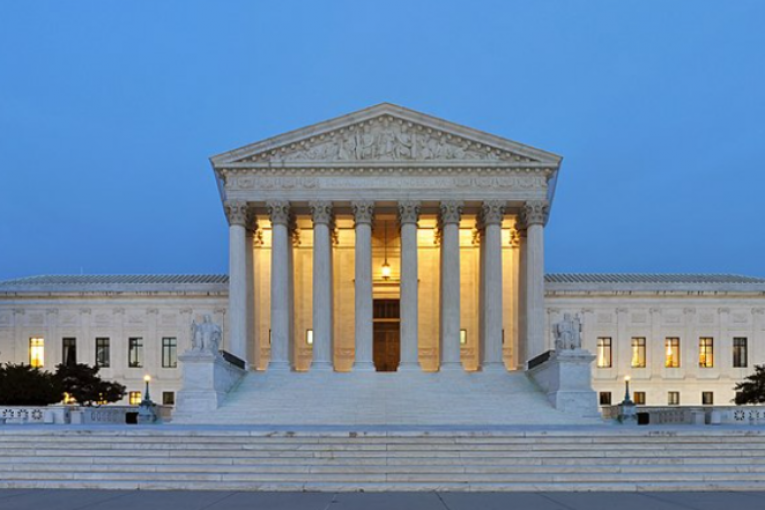

By Estrella Torres
WASHINGTON, DC – Matt Ford’s New Republic story highlights how prosecutors in the U.S. have long been immune from federal civil rights lawsuits, and how Price V. Montgomery County, has brought this long-contested issue to the forefront because the U.S. Supreme Court now has the authority and possibility to change or end prosecutors’ absolute immunity.
According to Ford, it is important to acknowledge how prosecutorial immunity has garnered much skepticism and criticism from the public in terms of prosecutors fulfilling their legal duties and providing justice to the public.
State and local officials including judges, legislators, and prosecutors enjoy “qualified immunity” unless they violate a “clearly established” constitutional right as described by Ford.
Justice Lewis Powell argues this established common law of prosecutorial immunity is “based upon the same considerations that underlie the common-law immunities of judges and grand jurors acting within the scope of their duties.”
However, there are various problematic implications with allowing immunity for prosecutors, as Powell adds, noting “concern that harassment by unfounded litigation would cause a deflection of the prosecutor’s energies from his public duties and the possibility that he would shade his decisions instead of exercising the independence of judgment required by his public trust.”
The Price v. Montgomery County case exposes these conflicting issues where the plaintiff, Nickie Miller, has filed a lawsuit against state law enforcement officials for conspiring to frame him for murder, details Ford.
According to the same article, a jailhouse informant came forward, claiming she and others had committed the murder. She maintained that Miller was one of the people who played a large role in the murder.
It was later discovered that Martin wrote letters in prison describing how she was coerced into stating her confession, explains Ford. At the request of Miller’s lawyers, a Kentucky Court ordered Martin’s letters be turned over for the lawsuit.
Miller consequently spent two years in prison before his charges were finally dropped, outlines New Republic.
According to Ford, the lawsuit alleges the assistant state prosecutor of the murder case, Keith Craycraft, directed Martin to destroy the exculpatory letter evidence. While Craycraft continues to deny this, the letters have mysteriously disappeared. Craycraft moved to dismiss the lawsuit on the grounds of prosecutorial immunity.
A federal district court judge in Kentucky, the Sixth Circuit Court of Appeals, and Craycraft concluded he was entitled to immunity, despite a court order, as the “Courts assume that the plaintiff’s facts are true when deciding motions to dismiss, so the rulings operated from the assumption that Craycraft did tell Martin to destroy the letters,” stated Ford in the New Republic.
The Sixth Circuit Panel’s majority notes the two opposing sides of the lawsuit, stating, “The behavior Miller describes in his complaint is difficult to justify and seemingly unbecoming of an official entrusted with enforcing the criminal law…at the same time, Craycraft has met his burden of establishing that the conduct at issue was committed in his role as prosecutor, rendering him immune from suit.”
Justice Byron White’s opinion contrasts with the majority who supported prosecutorial immunity.
He argues, “It is by no means true that such blanket absolute immunity is necessary or even helpful in protecting the judicial process…It should hardly need stating that, ordinarily, liability in damages for unconstitutional or otherwise illegal conduct has the very desirable effect of deterring such conduct.”
The New Republic story noted, Justice Antonin Scalia was skeptical of Imbler v. Pachtman, a past case where prosecutorial immunity was granted.
He asserted, wrote Ford, Imbler “relied for that holding upon a common law tradition of prosecutorial immunity that developed much later than 1871, and was not even a logical extrapolation from then-established immunities,”. Yet, he also posits that “…the holding of Imbler remains on the books, and for reasons of stare decisis I would not abandon it.”
Ford exposes how the Supreme Court tends to reject prosecutorial immunity only in cases when prosecutors perform acts outside their official functions.
Based on this knowledge, Judge John Nalbandian, wrote Ford in the New Republic, argues: “Craycraft was entitled to absolute immunity on the portions of his claims about advising a witness to destroy evidence.
“But he argued that absolute immunity did not apply to the allegations that Craycraft had violated a court order, as Miller had alleged.” Regardless of this, Nalbandian still holds that “Craycraft was entitled to qualified immunity since the allegedly violated right was not clearly established.”
The state made a few final statements in its brief, Ford’s New Republic story details.
“What matters is if something is done in the role of an advocate. Indeed, offering false testimony and suppressing exculpatory evidence are both plenty egregious. But both get absolute immunity.
“In short, the Third Circuit’s view strays from this Court’s cases. True, the Court could fix that with a grant. But correcting one circuit in clear conflict with the caselaw hardly seems worth it here.”
The long-contested and controversial issue of qualified prosecutorial immunity is important in the context of Price V. Montgomery County, Ford explains, adding how if this case is brought before the Supreme Court, there could be a possibility to modify immunity if warranted.